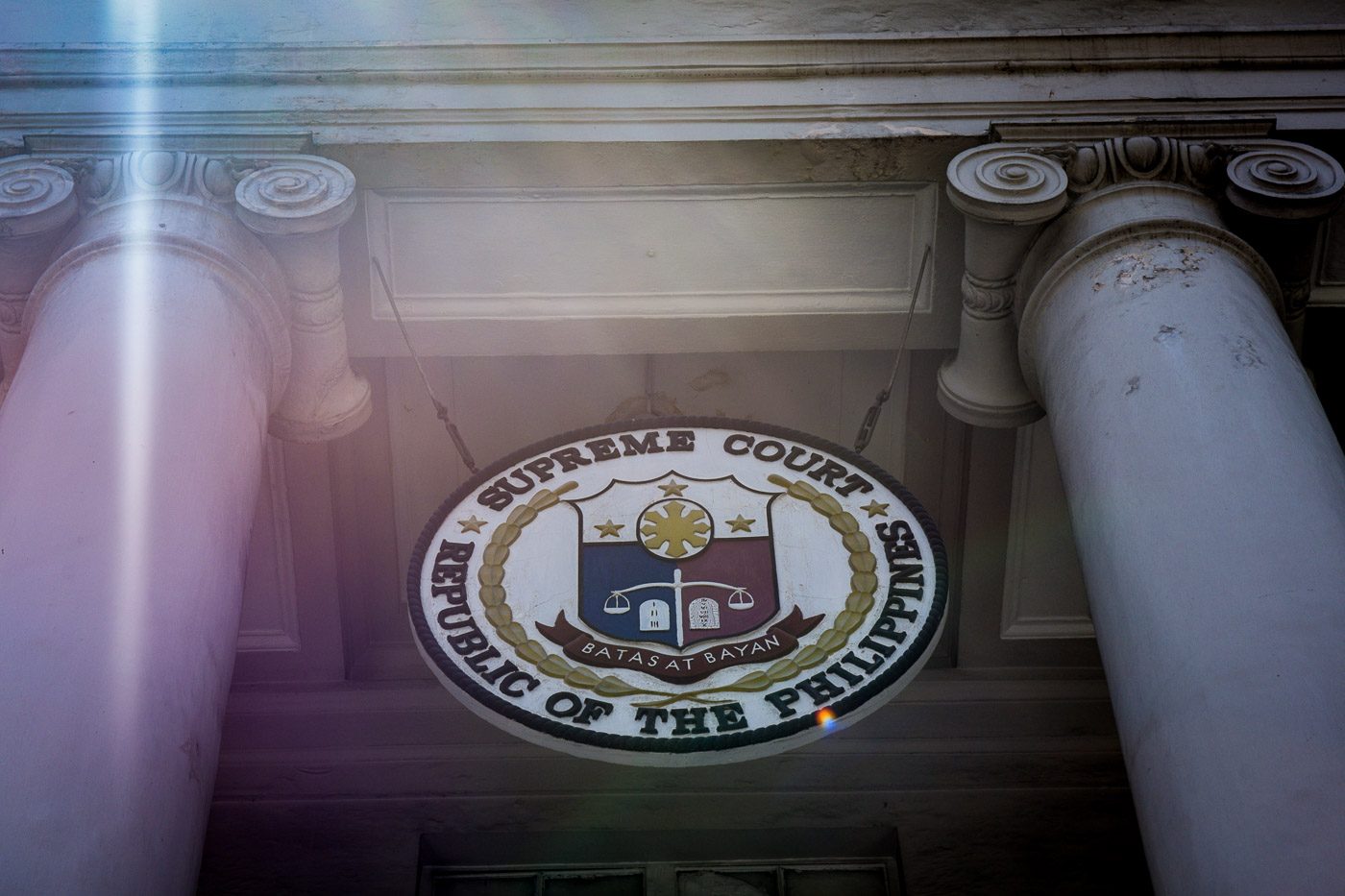SUMMARY
This is AI generated summarization, which may have errors. For context, always refer to the full article.

MANILA, Philippines (UPDATED) – The Supreme Court has suspended lawyer and former law professor Cresencio Co Untian Jr for making sexual advances to his students at Xavier University-Ateneo de Cagayan in Cagayan de Oro.
The SC en banc suspended Untian from law practice for 5 years, and from teaching law in any school for 10 years – a graver penalty than the two-year suspension previously imposed on him by the Integrated Bar of the Philippines (IBP).
This is the first time that the High Court “was required to penalize a law professor for sexually harassing his students,” said concurring Justice Marvic Leonen, who also said that the professor should have been disbarred instead of just suspended. (READ: SC: It takes courage for women to testify against men who abuse them)
Complaints
Three female students of Xavier University filed a complaint against Untian for sexual advances.
One complained that Untian sent her romantic messages, love notes, and even invited her to go to Camiguin, which she declined.
The other complained that the professor showed her a naked photo of a woman who looked like her, and teased her about it within hearing distance of other students.
The third student said that she asked the professor to repeat the question during recitation by saying, “Sir, come again?” Untian supposedly responded: “You want me to come again? I have not come the first time and don’t you know that it took me 5 minutes to come, and you want me to come again?”
In his explanation to the Court, Untian did not deny the incidents but said they were inaccurate accounts.
For the first incident, Untian claimed texting the student “luv u” and “miss u” were “friendly text messages sent without malice especially considering that they were misspelled,” according to the SC decision.
For the second incident, Untian said he merely showed the photo to the student “in the spirit of their open and uninhibited relationship.” (READ: SC acquits rape convict, says act was ‘consensual’)
“Respondent claimed that she was never humiliated when he showed her the photograph because she even gamely lowered down her pants to prove that it was not her in the photograph because unlike her, the naked woman did not have any tattoo,” said the SC decision.
As for the third incident, Untian said he just “injected humor” during class and told the student to “never use slang language in my class because you might be misinterpreted.”
What is sexual harassment?
In the initial IBP decision in 2017, the board said Untian was not guilty of Republic Act No. 7877 or the Anti-Sexual Harassment Law because “there was no evidence to show that respondent demanded or requested sexual favors.”
The IBP found Untian’s actions unbecoming of a law professor but said the two-year suspension “is a sufficient sanction to protect the public and the legal profession.”
The unanimous ruling penned by Associate Justice Jose Reyes Jr disagreed with the IBP that sexual harassment needed to result to being forced to have sex.
“The Court (has) explained that the essence of sexual harassment is not the violation of the victim’s sexuality but the abues power by the offender. In other words, what the law aims to punish is the undue exercise of power and authority manifested through sexually charged conduct or one filled with sexual undertones,” said the ruling.
The en banc also cited Rule 1.01 of the Code of Professional Responsibility which says “a lawyer shall not engage in an unlawful, dishonest, immoral or deceitful conduct,” and Canon 7 which says “lawyers shall, at all times, uphold the integrity and dignity of the legal profession.”
Should he have been disbarred?
In a separate concurring opinion, Leonen said Untian should have been disbarred.
“It was my understanding that the deliberations on this matter would have resulted in my colleagues voting unanimously in favor of disbarring respondent,” said Leonen.
Leonen added: “Had this not been the first time that this Court was required to penalize a law professor for sexually harassing his students, I would have maintained that respondent be disbarred to uphold the profession’s standards of moral integrity.”
Leonen said the ruling “acknowledges the persistence of patriarchy in our society.”
Leonen also said Untian “exceeded his male privilege.”
“It is a powerful, dominant, molding attitude that is nefariously manifested when demeaning and distressing representations of any woman, especially when clearly identified, are disguised as jokes. While normally entertaining for most men, this is generally callous to women, whose dignity may suffer,” Leonen said.
Safe campus
Xavier University welcomed the decision and reaffirmed its commitment to protect anyone on campus from any form of sexual harassment.
“Xavier Ateneo does not take lightly the issue of sexual harassment, particularly in an academic setting where students should feel safe and secure in studying their respective courses,” it said in a statement.
“Any form of sexual harassment has no place in a learning institution. We stand by the decision of the Supreme Court making Co-Untian accountable for his actions,” Xavier University added.
It said the SC decision “is but an affirmation of the same decision reached by its Committee on Decorum on September 5, 2002, for the same acts complained of against Co-Untian, who was then a part-time member of the faculty of the College of Law.”
It said that the university committee had found the lawyer guilty of violating Xavier’s Anti-Sexual Harassment Guidelines in 2002, and resolved to not renew his contract since then.
“We remain committed to strengthening our formation programs and protocols to ensure that all members of the Xavier Ateneo family, especially our students, fully enjoy a conducive learning environment, free from fear, intimidation, and harassment,” the university said. – Rappler.com
Add a comment
How does this make you feel?
There are no comments yet. Add your comment to start the conversation.